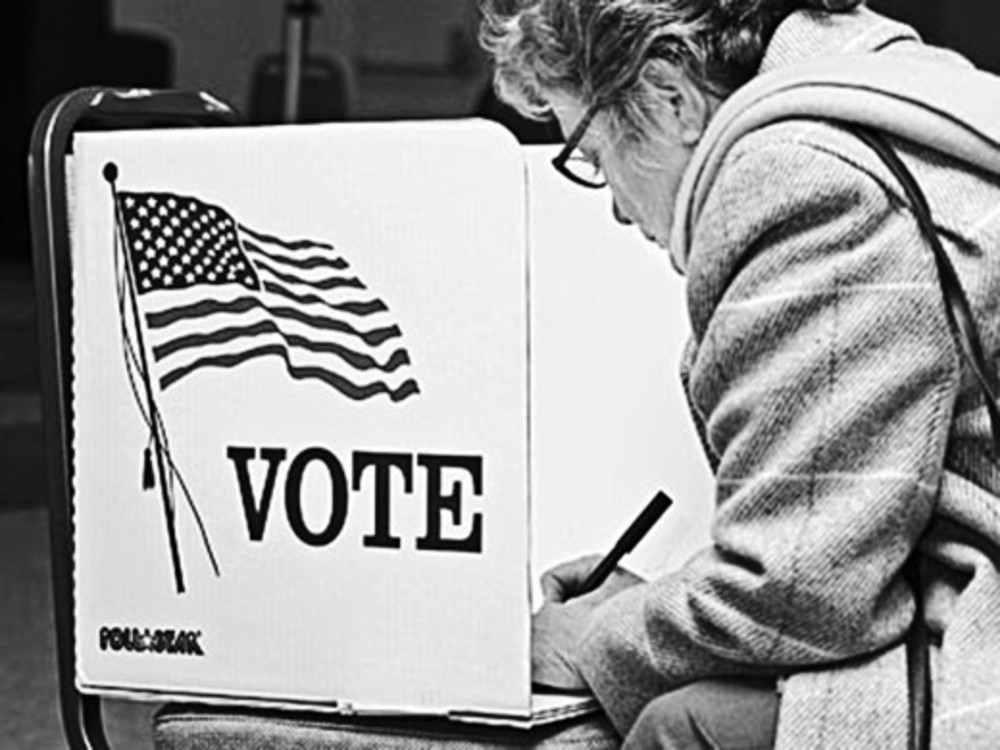Have you voted yet?
 The question was never, “Are you going to vote?” For my parents, Beryl and Chaya Segal, and their circle of friends (most of them naturalized Americans), not to vote was disgraceful and a neglect of their duty as Americans. And – heaven forbid! – to ask, “For whom are you voting?” was unthinkably rude. Was not the ballot SECRET?
The question was never, “Are you going to vote?” For my parents, Beryl and Chaya Segal, and their circle of friends (most of them naturalized Americans), not to vote was disgraceful and a neglect of their duty as Americans. And – heaven forbid! – to ask, “For whom are you voting?” was unthinkably rude. Was not the ballot SECRET?
My parents did not wait for school to teach us about civic responsibility. They had taken to heart those lessons taught in their Americanization classes and passed them on to us early in our childhood. I was 3 years old when my father took me by the hand and said, “We are going to vote.” It was a long walk to our polling place in Rochester, where we lived then. The site itself was dark and smoke-filled – hardly inviting. My father entered the booth. I had to wait in the big room. When he emerged, I shared his sense of a job well done. We had done our civic duty. We had voted.
Some two decades later, there was another generation to whom the lessons must be imparted. Judith Foster described her first venture in voting:
“My Bubbie Chaya donned her clip-on pearl earrings, smoothed her hair and adjusted her bun. Then out came the hat carefully stored in tissue paper and a box labeled Cherry & Webb. As my bubbie put on her immaculate white gloves, my mother joined us. No, we weren’t going to a Pioneer Woman meeting or to services at Temple (our more usual dressy venues). …but to the fire station on Rochambeau Avenue to vote! I was just a little girl, but from my bubbie’s choice of outfit, I understood both the festivity and gravity inherent in this outing as I skipped alongside.
“Friends and acquaintances were warmly greeted, and news was shared as we waited in line for our turn to express ourselves as citizens, to participate in civil society for the betterment of the lives of all people. Finally, it was our turn to go behind the curtain. I waited as my mother turned the small black knobs that marked her choices. Then it was my turn. I grabbed that big lever with both hands and pulled it to the side. With a satisfying and serious grinding noise, it moved and opened the curtain. I felt a sense of accomplishment! I had voted!
“Election days and many years passed, 30 of them, and it was time to repeat the ritual again,” Judith continued, “No more hats and gloves, and a public school in Brooklyn, New York, replaced the fire station on the East Side of Providence. But still a child, a little boy named Beryl, skipped alongside his mother as we made our way to vote. We once again greeted neighbors and hailed friends as we waited in line, and once again, a child was inducted into the adult world as an apprentice voter, pulling the lever to help realize a vision for the common good.
“That is what I thought about yesterday, after another 30 years, when I went once again on Election day to discharge my responsibility as a United States citizen. Times have changed and so has our electoral structure. Instead of the debates and lectures and rallies my grandparents attended, there are all sorts of media funded by Superpacs and corporations from everywhere in the country.
“I bubbled in my choices on a sheet of paper and then fed it into a computerized machine that appeared more like an ATM than a proper voting apparatus. I wondered about the next generation. How will they experience and measure the significance of civic responsibility without the levers and buttons and curtains and accounts of the old country where all of this was impossible?”
GERALDINE FOSTER is a past president of the Rhode Island Jewish Historical Association. To comment about this or any Rhode Island Jewish Historical Association article, email info@rijha.org.







